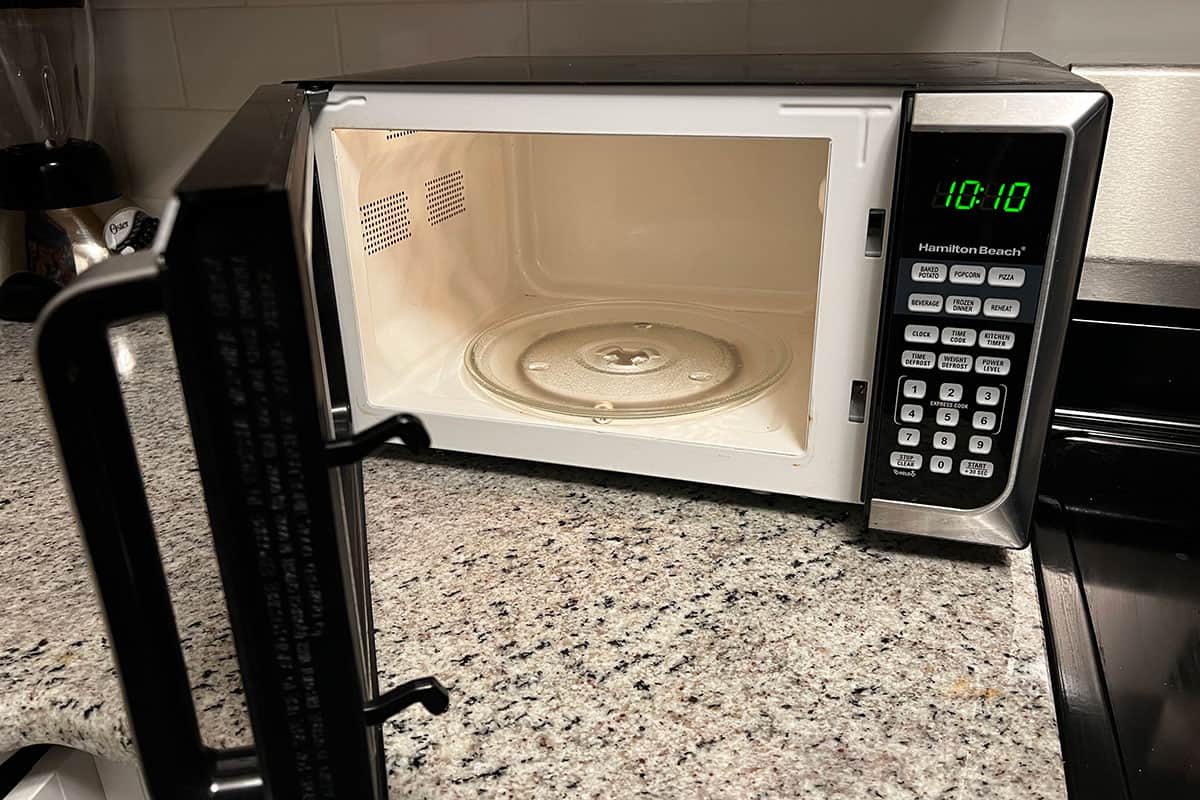This page may contain affiliate links. If you click and buy, we might get a small commission at no cost to you.
Since it’s invention, microwaves have faced several myths that make these useful appliances seem much scarier than they actually are. One such myth is that you can go blind watching a microwave. This myth is so common that a lot of people stay as far away from their microwave as possible while it’s on. But does watching a microwave really cause any health problems?
Can you go blind watching a microwave?
The fear associated with microwaves is directly connected to the fact that microwaves use a form of radiation to cook and heat food. Radiation is a scary word that often leaves people thinking of Chernobyl, and the complications that exposure to radiation can cause. While it may all sound frightening, the truth is that there are no reports about anyone going blind watching a microwave.
UL Inspected
UL, is a global company founded in 1894 that tests appliances for safety. If you take a quick look around your home you will probably notice at least a few items with a small “UL” approval stamp on it.
This means that item has been tested and certified for safety from the organization. The UL have been testing microwaves for safety since the 1970s, and, according to John Drengenberg who is an electrical engineer at UL, there haven’t been any reports of eye damage caused by looking at a microwave.
Radiation Is Trapped Inside
It is true that radiation is dangerous, and microwaves do use radiation to cook food. However, the microwave’s entire design is to keep that radiation in. The door of the microwave seals to prevent radiation from escaping, and the appliance won’t turn on without the door being completely closed.
Furthermore, the window where you would watch the food is protected by a barrier made from metal mesh that prevents the radiation from getting out of the microwave. If the door and its seal is in good condition, no radiation can escape.
How do I know when a microwave is going bad?

While microwaves are generally safe, they are not built to last forever. In fact, the average lifespan of a microwave is only 7 years. If you notice your microwave is having any of the following problems, repair or replace it asap.
It is possible for some electromagnetic waves to leak out of old or damaged microwaves, and the FDA even allows for this minuscule amount of radiation to leak out over the lifespan of a microwave. With that said, however, the amount is so small that it won’t cause damage or health complications.
- Door won’t close.
- Seal is damaged or wearing out.
- Microwave is sparking.
- It makes weird or unusual noises.
- There is a burning smell whenever the microwave is on.
- It doesn’t cook food properly.
- The keyboard doesn’t work properly.
- The microwave is over 10 years old.
If the microwave shows any of the above signs, replace it as soon as possible. Furthermore, avoid using the microwave until a new one can be bought. As with any appliance, the risks associated with using a broken or damaged cooking device are not worth the little bit of time it can safe you.
What does the FDA say about watching a microwave?
The FDA doesn’t recommend standing in front of a microwave while cooking food. They state that you shouldn’t stand directly in front of or up against a microwave while the appliance is on and running.
This is a safety precaution to help prevent exposure from any possible leaks that could occur. This is merely a precaution and not something that should make you afraid of microwaves, since injury from a microwave are extremely rare and are often due to damages to the microwave door or seal. In fact, you are more likely to be injured from removing the hot food from the microwave than any radiation that could leak out.
Conclusion
Key Takeaways
- Microwaves are regulated by the FDA, and they require manufacturers to pass safety regulations before they can be sold in the U.S.
- Microwaves are designed to keep radiation from leaking out. They are a safe appliance that can make cooking food quicker.
- There have never been any reports of someone going blind from watching a microwave.
- Even though they are generally safe, avoid using a microwave if the door doesn’t close all the way or the seals are damaged.
Microwaves are some of the safest appliances you can have in your kitchen. They have been regulated by the FDA since 1971, which requires microwave manufacturers to comply with a high level of safety standards.
As long as the appliance is in good working order, you have nothing to worry about. You can stand in front of the microwave and watch your food cook without the possibility of damage to your eyes or your health.



